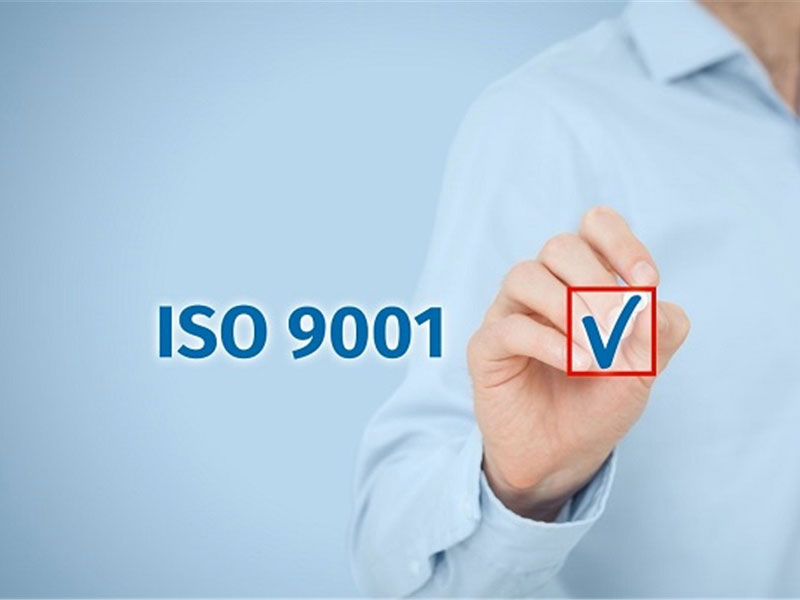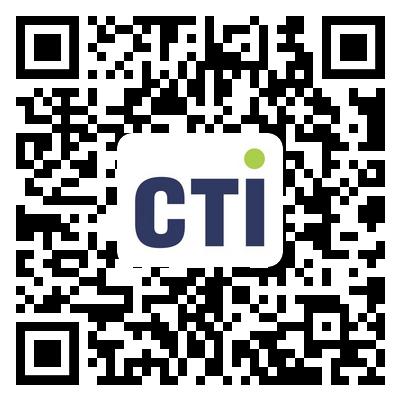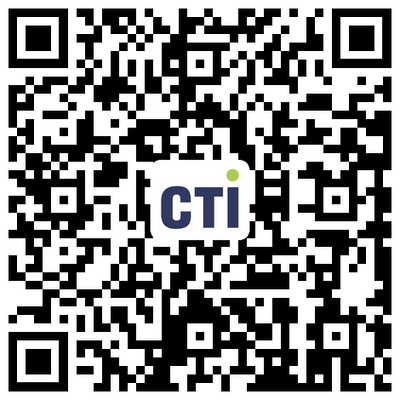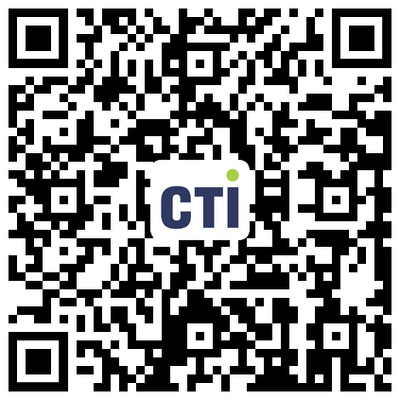- Home
- About CTI
- Our Services
- Investor Relations
- CTI Mall
- Resource Center
- Reports Validation
- Join Us
-
 Overview
Overview
Centre Testing International Group Co., Ltd. (CTI) is a market leader in testing, inspection, certification, calibration, audit, training & technical services; building trust between governments, enterprises, and consumers.
-
 Sustainability
SustainabilitySustainability is deeply rooted in CTI’s business model, by delivering science-based solutions and verification services, to increase transparency and traceability throughout the global value chain. CTI is a proponent of carbon neutrality and sustainable development.
-
 Our service
Our serviceCentre Testing International Co., Ltd. (CTI) is the pioneer and leader in the TIC Industry which provides one-stop solutions on testing, inspection, certification, calibration, audit, training & technical services.
-
By Industry
Our service capabilties cover the upstream and downstream of the supply chain including textile and apparel,toys,electronic appliances,medical health,food...andother industries.
-
 Environment
Environment
-
 Raw Material & Fuel Chemicals
Raw Material & Fuel Chemicals
-
 Textiles, Apparel, Footwear & Accessories
Textiles, Apparel, Footwear & Accessories
-
 Food & Agricultural Products
Food & Agricultural Products
-
 Cosmetics, Personal Care & Household Chemicals
Cosmetics, Personal Care & Household Chemicals
-
 Building Materials&Construction Engineering
Building Materials&Construction Engineering
-
 Electronic & Electrical Appliances
Electronic & Electrical Appliances
-
 Toys, Furniture & Home Decoration
Toys, Furniture & Home Decoration
-
 Industrial Equipment & Manufacturing
Industrial Equipment & Manufacturing
-
 Rail & Aviation
Rail & Aviation
-
 Automotive & Spare Parts
Automotive & Spare Parts
-
 Pharma and Medical Services
Pharma and Medical Services
-
 Maritime Vessel Compliance Testing
Maritime Vessel Compliance Testing
 By Industry
By IndustryOur service capabilties cover the upstream and downstream of the supply chain including textile and apparel,toys,electronic appliances,medical health,food...andother industries.
-
-
 Specialty
SpecialtyComprehensively guarantee quality and safety, promote compliance and innovation, demonstrate brand competitiveness, and achieve higher quality, healthier, safer, and greener sustainable development.
-
 Management
ManagementWe have established a clear governance structure in accordance with listing requirements and national regulations and policies to deal with internal and external challenges and achieve sustainable development.
-
 Information DisclosureWe are committed to establishing normal and effective two-way communication with shareholders and investors. We have established a complete information disclosure mechanism to convey information to shareholders in a timely manner.
Information DisclosureWe are committed to establishing normal and effective two-way communication with shareholders and investors. We have established a complete information disclosure mechanism to convey information to shareholders in a timely manner.
-
 Talents Policy
Talents PolicyEnsuring the basic rights and benefits of employees;
Providing professional skills training to promote employees’ growth;
Carrying out various kinds of activities to balance employees’ work and life.
-
 RecruitmentWelcome to join CTI family! We are providing a platform for you to show your talents and achieve your career aspiration.
RecruitmentWelcome to join CTI family! We are providing a platform for you to show your talents and achieve your career aspiration.
- Resource Center
- Application Forms
- Bulletin
- Training Center
- CTI Academy
- Reports Validation

QUALITY & VALUE
CTI provides ISO 9001 quality management system certification services related to system certification. CTI certification can provide ISO9001 management system certification, training and other services for various industry organizations. CTI certification issued China’s first ISO 9000 quality management system certification-Asia Bicycle Factory, and accepted IQNET and IAF reviews on behalf of Chinese certification bodies, and made outstanding contributions to my country's smooth passing of IAF accreditation and related organizations joining the International Certification Alliance .
- Consulting quotation
- Online shopping mall

Established in 1993, CTI Certification is the earliest tripartite certification body in China, approved by the China National Certification and Accreditation Administration (CNCA) and accredited by the China National Accreditation Service for Conformity Assessment (CNAS). CTI Huace Certification issued China's first ISO 9000 quality management system certification to the Asian Bicycle Factory. Representing Chinese certification bodies, it underwent assessments by IQNET and the International Accreditation Forum (IAF), making notable contributions to China's successful IAF accreditation and its inclusion in the International Accreditation Forum. CTI Huace Certification offers various industries ISO 9001 management system certification and training services.
Background of ISO 9000 Certification:
The International Organization for Standardization (ISO) stands as the world's foremost non-governmental international standard-setting organization, founded post-World War II with its headquarters in Geneva, Switzerland. The organization aims to advance standardization and related efforts globally to facilitate international trade, sharing of services, and foster collaboration in knowledge, science, technology, and economic activities to promote the globalization of product and service trade. ISO's international standards, accepted by over 100 member countries and regions worldwide, hold significant recognition globally.
The quality assurance standard originated from the military standards utilized in the United States' military equipment. Post-World War II, drawing from experiences and lessons of military product quality during the war, the US Department of Defense decided to implement quality assurance in procurements of munitions and military supplies. This assurance required suppliers to not only guarantee the physical quality of products as per technical requirements but also to manage quality as stipulated in the quality assurance clauses of the contract and provide documented proof of quality control upon product submission. This approach led contractors to adopt comprehensive quality management practices, achieving tremendous success. After 1978, quality assurance standards began to be applied in civil procurements. The UK established a set of quality assurance standards, namely BS5750. Subsequently, many European and American countries, to adapt to quality assurance standards for both suppliers and demanders and the new quality management requirements, developed their respective quality management standards and implementation guidelines, building upon years of quality management practices.
The ISO/TC176 Technical Committee was established by ISO to meet the demand for quality assurance practices in civil procurements internationally. By assimilating and referencing standards and practical experiences globally, this committee, through extensive consultations, released the world's first series of international standards for quality management and quality assurance in 1987—the ISO 9000 series of standards. The advent of these standards marked a new era in global quality management and quality assurance efforts, playing a crucial role in advancing quality management in industrial enterprises worldwide and enhancing quality assurance between suppliers and demanders, fostering international trade relationships effectively.
Key Features of the Standard:
1. Applicability to various organizational management and operations.
2. Ability to meet industry-specific standards.
3. Bridging quality management with organizational processes.
4. Emphasis on the application of process approaches, identifying and managing processes used within the organization, especially interactions between these processes, integrating quality management system methods as part of process management.
5. Emphasis on continuous improvement of quality performance.
6. Positioning continuous improvement as a cornerstone of the quality management system.
7. Emphasis on continuous customer satisfaction as the driving force behind quality management systems, urging organizations to continually enhance their products and processes to achieve sustained customer satisfaction.
8. Consideration of the needs of all relevant stakeholders.
Relevant Standards:
- ISO 9001 has undergone nearly 30 years of development since its release, with the new version of ISO 9001 officially launched in September 2015.
- GB/T 19001-2016 Quality Management System Requirements.
- GB/T 19004 Pursuing Organizational Continuous Success Quality Management Methods.
- GB/T 19010 Quality Management Customer Satisfaction Organizational Conduct Guidelines.
- GB/T 19012 Quality Management Customer Satisfaction Organizational Complaint Handling Guidelines.
- GB/T 19013 Quality Management Customer Satisfaction Organizational External Dispute Resolution Guidelines.
- GB/Z 27907 Quality Management Customer Satisfaction Monitoring and Measurement Guidelines.
- GB/T 19015 Quality Management System Quality Planning Guidelines.
Benefits of Certification for Organizations:
- Assisting organizations in establishing more robust management systems, enhancing internal management and technical levels, and stabilizing production operations.
- Strengthening quality management through full staff participation, elevating the quality of products and services.
- Improving work efficiency, reducing product costs, and overall enhancing business economic benefits.
- Obtaining qualifications for market access, enhancing market competitiveness, and gaining a competitive edge.
- Acquiring significant endorsements that customers and consumers can trust, reinforcing trust and sustained satisfaction with the organization.
- Eliminating trust crises through professional and authoritative certification, saving resources and costs associated with repetitive verification.
- Serving as a "passport" for government procurement and major project tenders.
- Securing an "eco-friendly passport" for international trade, breaking down technical barriers set between international trades.
- Expanding enterprise visibility and boosting corporate image.
- Representing a crucial pathway for enterprises to fulfill social responsibility commitments and achieve sustainable development.
Scope of Application:
The ISO 9001 standard serves as the basis for organizations seeking certification, explicitly stating its applicability across various industries and without limitations on the size of enterprises. Currently, internationally certified enterprises span across various sectors in the national economy.
Conditions for Certification Application:
Organizations seeking certification must meet the following basic conditions:
- Possess independent legal status or authorization by an independent legal entity.
- Establish a documented quality management system in accordance with the requirements of ISO 9001.
- Operate the documented system for over three months, conducting at least one management review and internal quality system audit as per the system's requirements before undergoing certification audits.
GB/T 50430 Engineering Construction Enterprises Quality Management Specifications:
The Engineering Construction Enterprise Quality Management Specifications (GB/T 50430-2007), founded on existing international quality management standards, are tailored to the characteristics of China's engineering construction industry. These specifications outline quality management requirements for construction enterprises, promoting scientific, standardized, and legal quality management practices in construction enterprises to meet the demands of economic globalization.
Service Process:
Contract Signing - On-Site Audit - Initial Examination and Certification - Supervisory Assessment - Re-certification Audit
- About CTI
- Our Services
- Investor Relations
- CTI Mall
-
Resource Center
- Application Forms
- Bulletin
- Training Center
- CTI Academy
- Reports Validation
-
Join Us
- Talents Policy
- Recruitment


























 粤公网安备 44030602000441号
粤公网安备 44030602000441号 